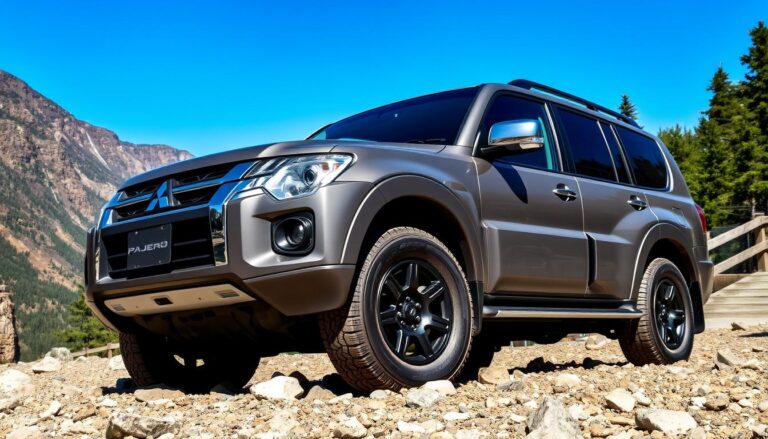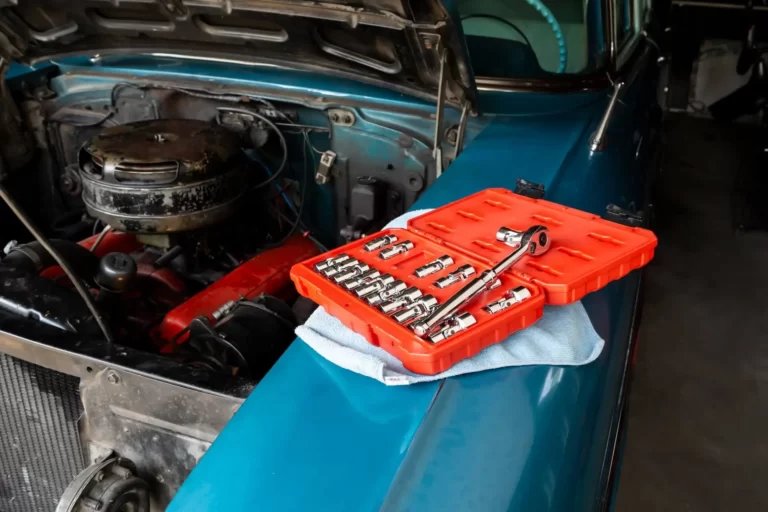Why Everyone Wants To Replace An Old Car
The decision to replace an old car is one that many people will face at some point in their lives. This can be a difficult process for automotive enthusiasts as they need to ensure the new vehicle meets their needs and expectations.
While there are numerous factors involved in making such a decision, understanding why everyone wants to replace an old car provides individuals with greater insight into the process. This article explores the reasons behind replacing an aging car, from improved safety features to increased performance capabilities.
By examining these various aspects of modern cars, readers gain important knowledge on making a smart purchasing choice when it comes time for them to upgrade their vehicles.
Benefits Of Owning A New Vehicle
The call of the open road beckons with a promise of adventure. Owning an automobile brings freedom and independence to those who heed its song, whether for practical or pleasure. With this newfound autonomy comes the responsibility of ownership: regular maintenance, upkeep, and replacement when needed.
Replacing an older model vehicle can bring many advantages such as improved safety features, increased fuel efficiency, modern design options, and advanced technology.
Safety has come a long way in recent years; manufacturers are able to equip new vehicles with up-to-date systems like blind spot monitoring, lane departure warning, forward collision avoidance with automatic emergency braking, rearview cameras, and parking sensors that make driving safer than ever before. In addition to these technological improvements, newer cars often have more rigid frames which protect passengers better in case of an accident.
Fuel efficiency is another key factor when it comes to replacing your car. Newer models typically get significantly better gas mileage than their outdated counterparts due to advances in engine design and construction materials used throughout the vehicle’s body. This can lead to major savings at the pump over time – particularly helpful given today’s rising gas prices!
Modern designs offer much more attractive looks than older models, and innovations like panoramic sunroofs or glossy alloy wheels appeal to drivers seeking something special on their ride. An updated interior with plush leather seating surfaces or a sleek digital dashboard display adds even more luxury while providing convenience through larger cargo space and integrated infotainment systems optimized for connectivity on the go.
Finally, newer vehicles are equipped with cutting-edge technology that allows them to be smarter than ever before – from voice recognition software capable of understanding natural language commands to automated navigation systems powered by GPS satellites orbiting above us all day every day – allowing us access to information quickly without any hassle during our travels.
Cost Savings Of Replacing An Old Car
Replacing an old car can be immensely cost-effective. When opting for a newer, more efficient model, drivers benefit from updated safety features and increased reliability, and the potential to save money in fuel costs over time.
The cost of gas is always fluctuating, so investing in a car with improved fuel economy will help cut down on trips to the pump and provide owners with significant savings over the life of their vehicle.
Additionally, new cars come with manufacturer warranties that can protect against costly repairs or spare buyers from having to pay out-of-pocket if something goes wrong.
All these factors combined make replacing an old car a wise decision from both a practical and financial standpoint.
In terms of long-term value, buying a reliable new car can guarantee years of trouble-free use while providing peace of mind knowing that expensive repairs are covered under warranty.
Considering all this, it’s easy to see why many people opt to replace their outdated vehicles each year.
Environmental Impact Of Driving An Old Car
Driving an old car can profoundly affect the environment, with carbon emissions, air pollution, and fuel efficiency all being factors to consider. Carbon emissions from old cars are typically significantly higher than those from newer models and contribute to global warming.
Additionally, air pollution from an old car is likely to be higher, with the potential to cause smog and other health-related concerns. Finally, fuel efficiency is an important factor when considering an old car, as it can largely determine the cost of an owner’s fuel expenditure.
Carbon Emissions
The environmental impact of driving an old car is undeniable, with the release of carbon emissions from a vehicle that has yet to be maintained or upgraded to modern standards being one of the most pressing concerns.
With car emission regulations becoming ever stricter in many countries, keeping up-to-date on the latest developments and ensuring your older model meets them all can be difficult.
Upgrading to a newer, more efficient model represents a significant investment but also offers long-term savings in terms of reduced fuel costs as well as improved performance.
Furthermore, transitioning from an outdated vehicle to something more sustainable and reliable helps reduce our collective impact on the environment and preserve resources for future generations.
Everyone should consider replacing their old car for plenty of reasons – now is the perfect time to make the switch.
Air Pollution
Air pollution is a pervasive issue in many cities worldwide, and driving an old car can significantly impact air quality.
Cars not updated with emissions regulations or routinely serviced and maintained may produce far more pollutants than modern vehicles.
This includes common pollutants like hydrocarbons (HC), Nitrogen Oxides (NOx), and Carbon Monoxide (CO).
These pollutants contribute to smog formation and photochemical oxidants, which cause respiratory problems such as asthma and bronchitis.
It is clear that transitioning from an outdated vehicle toward something more efficient will help reduce our collective contribution towards air pollution, allowing us all to breathe easier while improving public health outcomes.
Fuel Efficiency
Fuel efficiency is important when considering the environmental impact of driving an old car.
The amount of fuel a vehicle consumes affects its emissions and overall running costs, making it a major factor in reducing air pollution.
More efficient engines also mean less CO2 released into the atmosphere and lower operational costs for owners.
Modern vehicles have improved massively over time, featuring technologies such as turbocharged direct injection, which boosts power while minimizing emissions and improving fuel economy at the same time.
Furthermore, electric cars are becoming increasingly available on the market providing drivers with even greater options to reduce their environmental footprint.
It has become easier than ever to be kinder to our environment without sacrificing performance or convenience, allowing us to make informed choices that benefit us and those around us.
Reliability Issues Of Older Vehicles
For many, owning a vehicle is more than just out of necessity. It also expresses their identity. As such, the reliability of their car can be paramount to how confident they feel on the roads.
Unfortunately, for those with older cars, plenty of issues could arise from not keeping up with regular maintenance and repair needs. The car components will eventually wear down over time due to normal use or environmental factors like temperature and humidity. This means essential systems like brakes, engines, and transmissions may need to be replaced sooner rather than later if left unchecked. Additionally, parts become increasingly more challenging to find as models age, making repairs difficult or even impossible in some cases.
Safety should always come first when driving; investing in a newer model might be cheaper than dealing with potential breakdowns while behind the wheel. Newer vehicles offer better protection against crashes, improved fuel economy, and reduced emissions compared to older models.
Finally, upgrading your ride may bring peace of mind knowing that you have modern technology at your disposal; features such as lane departure warnings and automated braking are becoming commonplace in new cars today and help make driving much safer overall.
New Technology Available In New Models
Advanced safety features in new models have made it possible for drivers to drive with increased confidence, thanks to the availability of functions such as emergency braking, blind-spot monitoring, and lane-keeping assistance. Enhanced connectivity in new models has dramatically improved in-car infotainment systems, with many new models offering advanced smartphone integration and the latest app support.
Improved fuel efficiency in new models has enabled drivers to save money at the pump, thanks to advanced engine technologies such as turbocharged engines and electric hybrid drivetrains.
Advanced Safety Features
The newest model vehicles come equipped with advanced safety features that allow drivers to be more secure on the road.
Automotive journalists have been impressed by these technological advances, which include lane-keeping assistance and automatic emergency braking systems.
These technologies help reduce accidents due to distracted driving or sudden obstacles in the roadway; they also make it easier for drivers to stay aware of their surroundings while keeping both hands on the wheel.
Additionally, new cars are increasingly incorporating adaptive cruise control technology, allowing them to maintain a safe distance from other vehicles in highway traffic.
Modern models offer unprecedented security compared to older generations of automobiles – making them especially attractive if you’re looking for a safer ride.
Enhanced Connectivity
In addition to improved safety features, modern vehicles are also offering enhanced connectivity options.
Many of the latest models come equipped with built-in Wi-Fi hotspots and smartphone integration, allowing drivers to stay connected while on the move.
This can be especially helpful for making hands-free calls or accessing maps and directions from a mobile device.
With these advanced capabilities, today’s automobiles offer unprecedented convenience – perfect for anyone looking for a more convenient driving experience.
Improved Fuel Efficiency
The green movement has made great strides in recent years, and modern vehicles are responding by offering improved fuel efficiency.
Many models now feature hybrid powertrains that combine a gasoline engine with an electric motor for greater energy savings without sacrificing performance.
Additionally, automakers have developed advanced aerodynamic designs to reduce wind resistance and improve overall mileage.
These technologies offer an excellent solution for drivers looking to save money while reducing their environmental impact.
Furthermore, many of today’s cars boast extensive battery ranges perfect for those who seek all-electric travel options or simply want peace of mind when it comes to range anxiety.
With increased technology and improved design, new model cars offer unprecedented levels of efficiency perfect for anyone looking to maximize both environmental friendliness and cost-effectiveness.
Safety Features Of Newer Cars
The new technology available in today’s vehicles is remarkable, and the safety features of these models are even more impressive.
Many modern cars come with advanced driver-assistance systems (ADAS), such as blind-spot monitoring, automatic emergency braking, lane departure warnings, adaptive cruise control, and more.
These technologies can greatly reduce the chances of being involved in an accident, offering more protection for drivers and their passengers than older models.
Additionally, many newer vehicles feature extensive airbag systems that provide added protection in a collision.
This combination of enhanced safety measures makes them ideal replacements for aging automobiles that lack these latest advancements.
Frequently Asked Questions
How Long Should An Old Car Be Kept Before Replacing It?
The old car is like an aging champion, still capable of greatness, yet beginning to show signs of wear.
The headlights no longer shine as brightly in the night and the engine sputters when it should roar.
A certain nostalgia comes with driving an older vehicle; some might say it’s akin to riding a wave back into childhood days or taking a journey through time itself.
But at what point does holding on become detrimental?
When does keeping an old car become more about sentiment than practicality?
Ultimately, how long should an old car be kept before replacing it?
Is It Better To Buy A New Car Or A Used Car?
When purchasing a car, deciding between buying a new or used model can be difficult.
On the one hand, buying a new car may provide more peace of mind due to its reliability and typically longer warranties offered by manufacturers.
On the other hand, choosing a used vehicle may offer greater savings on an upfront purchase price and lower insurance costs in many cases.
Ultimately, this decision should depend upon personal budgeting needs and desired features from the vehicle itself.
What Is The Best Way To Dispose Of An Old Car?Disposing of an old car can be a difficult decision. The best way to do it is by recycling the parts or taking advantage of local scrap metal yards. Selling the car as-is may be an option for those looking to make some extra money.
Additionally, donating one’s car to charity will help out someone in need and give the owner tax deductions that could save them money when filing their taxes.
Ultimately, each situation is unique and requires careful consideration before deciding to dispose of an old car.
What Are The Long-Term Costs Associated With Owning A New Car?
Owning a new car is sometimes seen as the epitome of luxury and success, but it also comes with long-term costs that can be staggering.
From fuel expenses to insurance premiums, purchasing a new vehicle entails a frightening commitment in both money and time. Experienced automotive journalists know that these financial commitments are enough to give even the most seasoned drivers cold feet.
In order to make sure you stay calm by the sheer number of bills associated with owning a new car, it’s important to do your research ahead of time and weigh out all potential pros and cons before signing on the dotted line.
What Type Of Maintenance Is Required To Keep A New Car Running Smoothly?
Owning a new car is an investment that requires regular maintenance to keep it running smoothly.
Such maintenance may include oil changes, tire rotations, brake inspections, and other services suggested by the manufacturer.
It’s important to follow the recommendations of your vehicle’s manual when performing these tasks to ensure that your car will continue to run efficiently for years to come.
Conclusion
Statistics show that, on average, cars last for about 8 years with proper maintenance and care. At this point, many owners consider replacing their vehicles with something newer or more reliable. The decision to replace an old car is difficult, and the potential benefits should be weighed against all associated costs.
When shopping for a new car, it is important to remember that both used and new vehicles have pros and cons. Used cars may cost less upfront but typically require higher maintenance levels due to age-related wear and tear. On the other hand, newly acquired cars come with warranty coverage which can help offset some of the expenses associated with ownership.
Car disposal is another factor to take into account when making the decision to replace an old car. Properly disposing of an older vehicle helps protect the environment and puts money back in your pocket through incentives such as cash rebates or tax credits offered by certain states.
Additionally, research shows that owning a new car could save you up to 25% over time in repair costs compared to keeping an older model running smoothly. This data presents a compelling argument in favor of trading out your existing ride for something newer.
Given all these considerations, several factors contribute to why so many people upgrade their current rides for something else. With careful planning, upgraded safety features available on today’s models, lower long-term costs associated with repairs, and various forms of financial assistance available from government programs – it’s no wonder why so many drivers opt for new wheels every few years rather than hold on to their aging autos indefinitely!







